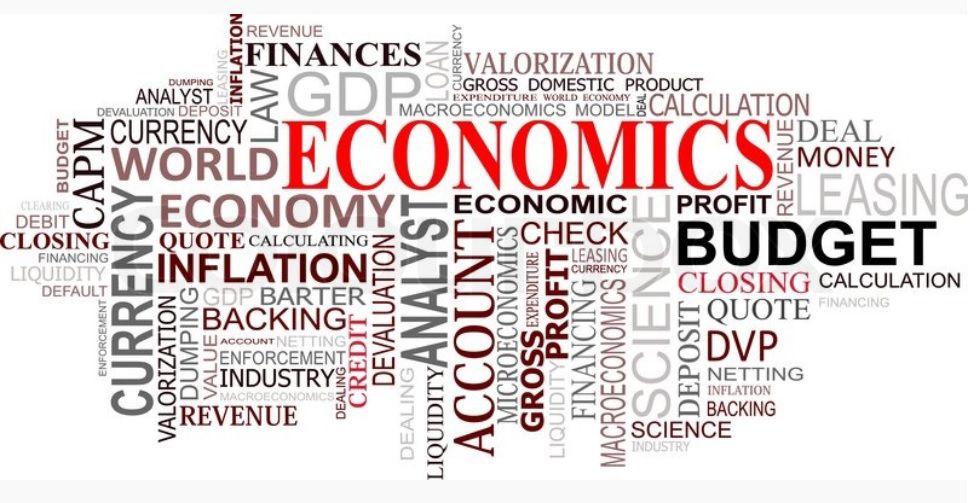News
IMF Raises Nigeria’s Economic Growth Forecast To 3.4%

The International Monetary Fund (IMF), has raised its forecast for Nigeria’s economic growth in 2022 to 3.4 per cent, citing increase in crude oil prices.
However, the IMF reduced its projection for global growth to 3.6 per cent in both 2022 and 2023, citing the impact of costly humanitarian crisis economic damage from the Russia war on Ukraine.
The IMF stated this in its April World Economic Outlook (WEO) report released as part of activities at the ongoing IMF/World Bank spring meeting in Washington DC, USA, yesterday.
The new forecast represents 0.7 percentage points and 0.4 percentage points higher than the 2.7percent projected by the IMF in January for the country’s economic growth in 2022 and 2023.
Similarly, the IMF upgraded its economic growth forecast for the Sub-Saharan African region to 3.8per cent in 2022, representing a 0.1 percentage point increase from the 3.7per cent forecast made in January.
The IMF said: “In sub-Saharan Africa, food prices are also the most important channel of transmission, although in slightly different ways.
“Wheat is a less important part of the diet, but food in general is a larger share of consumption.
“Higher food prices will hurt consumers’ purchasing power—particularly among low-income households—and weigh on domestic demand.
“Social and political turmoil, most notably in West Africa, also weigh on the outlook.
“The increase in oil prices has, however, lifted growth prospects for the region’s oil exporters, such as Nigeria. Overall, growth in sub-Saharan Africa is projected at 3.8percent in 2022″
On the decision to revised downward its projection for global economic growth, Economic Counsellor and Director of the Research Department, IMF, Pierre-Olivier Gourinchas, said: “Compared to our January forecast, we have revised our projection for global growth downwards to 3.6percent in both 2022 and 2023.
“This reflects the direct impact of the war on Ukraine and sanctions on Russia, with both countries projected to experience steep contractions.
“This year’s growth outlook for the European Union has been revised downward by 1.1 percentage points due to the indirect effects of the war, making it the second largest contributor to the overall downward revision.
“The war adds to the series of supply shocks that have struck the global economy in recent years.
“Like seismic waves, its effects will propagate far and wide—through commodity markets, trade, and financial linkages.”
The IMF also projected inflation to rise further across the global economy due to the impact of the war.
“Inflation is expected to remain elevated for longer than in the previous forecast, driven by war-induced commodity price increases and broadening price pressures.
“For 2022, inflation is projected at 5.7percent in advanced economies and 8.7percent in emerging market and developing economies—1.8 and 2.8 percentage points higher than projected in January.
“Although a gradual resolution of supply-demand imbalances and a modest pickup in labour supply are expected in the baseline, easing price inflation eventually, uncertainty again surrounds the forecast.
“Conditions could significantly deteriorate. Worsening supply-demand imbalances— including those stemming from the war—and further increases in commodity prices could lead to persistently high inflation, rising inflation expectations, and stronger wage growth,” the IMF said.
News
Shettima In Ethiopia For State Visit

Vice President Kashim Shettima has arrived in Addis Ababa, Ethiopia, for an official State visit at the invitation of the Prime Minister, Dr. Abiy Ahmed.
Upon arrival yesterday, Shettima was received at the airport by the Minister of Foreign Affairs of Ethiopia, Dr. Gedion Timothewos, and other members of the Ethiopian and Nigerian diplomatic corps.
Senior Special Assistant to the Vice President on Media and Communication, Stanley Nkwocha, revealed this in a statement he signed yesterday, titled: “VP Shettima arrives in Ethiopia for official state visit.”
During the visit, Vice President Shettima will participate in the official launch of Ethiopia’s Green Legacy Programme, a flagship environmental initiative.
The programme designed to combat deforestation, enhance biodiversity, and mitigate the adverse effects of climate change targets the planting of 20 billion tree seedlings over a four-year period.
In line with strengthening bilateral ties in agriculture and industrial development, the Vice President will also embark on a strategic tour of key industrial zones and integrated agricultural facilities across selected regions of Ethiopia.
News
RSG Tasks Farmers On N4bn Agric Loan ….As RAAMP Takes Sensitization Campaign To Four LGs In Rivers

The Rivers State Government has called on the people of the state especially farmers to access the ?4billion agricultural loans made available by the State and domiciled in the Bank of Industry.
This is as the State Project Implementation Unit (SPIU) of Rural Access and Agricultural Marketing Project (RAAMP), a World Bank project, took its sensitization campaign to Opobo/Nkoro, Andoni, Port Harcourt City and Obio/Akpor local government areas.
The campaign was aimed at enlightening community dwellers and other stakeholders in the various local government areas on the RAAMP project implementation and programme activities.
The Permanent Secretary, Rivers State Ministry of Agriculture, Mr Maurice Ogolo, said this at Opobo town, Ngo, Port Harcourt City and Rumuodumanya, headquarters of the four local government areas respectively, during the sensitization campaign.
Ogolo said apart from the ?4billion, the government has also made available fertilizers and other farm inputs to farmers in the various local government areas.
The Permanent Secretary who is the Chairman, State Steering Committee for the project, said RAAMP will construct roads that will connect farms to markets to enable farmers and fishermen sell their farms produce and fishes.
He also said rural roads would be constructed to farms and fishing settlements, and warned against any act that will lead to the cancellation of the projects in the four local government areas.
According to him, the World Bank and Federal Government which are the financiers of the programme will not condone such acts like kidnapping, marching ground and other acts inimical to the successful implementation of the projects in their respective areas.
At PHALGA, Ogolo asserted that the city will benefit in the areas of roads and bridge construction.
He noted that RAAMP was thriving in both the Federal Capital Territory, Abuja; Lagos and other states in the country, stressing that the project should also be given the seriousness it deserves in Rivers State.
Speaking at Opobo town, the headquarters of Opobo/Nkoro Local Government Area, the project coordinator, RAAMP, Mr.Joshua Kpakol, said the programme would reduce poverty in the state.
According to him, both fishermen and farmers will maximally benefit from the programme.
At Ngo which is the headquarters of Andoni Local Government Area, Kpakol said roads will be constructed to all remote fishing settlements.
He said Rivers State is lucky to be among the states implementing the project, and stressed the need for the people to embrace it.
Meanwhile, Kpakol said at PHALGA that RAAMP is a project that will transform the lives of farmers, traders and other stakeholders in the area.
He urged the stakeholders to spread the information to their various communities.
However, some of the stakeholders at Opobo town complained about the destruction of their farms by bulls allegedly owed by traditional rulers in the area, as well as incessant stealing of their canoes at waterfronts.
At Ngo, Archbishop Elkanah Hanson, founder of El-Shaddai Church, commended the World Bank and the Federal Government for bringing the projects to Andoni.
He stressed the need for the construction of roads to fishing settlements in the area.
Also, a former Commissioner for Agriculture in the state and Okan Ama of Ekede, HRH King Gad Harry, noted that storage facilities have become necessary for a successful agricultural programme.
Harry also stressed the need for the programme to be made sustainable.
In their separate speeches, the administrators of Andoni and Opobo/Nkoro Local Government Areas, pledged their readiness to support the programme.
At Port Harcourt City, the Administrator, Dr Arthur Kalagbor, represented by the Head of Local Government Administration, Port Harcourt City, Mr Clifford Paul, said the city would support the implementation of the programme in the area.
Also, the administrator of Obio/Akpor Local Government Area, Dr Clifford Ndu Walter, represented by Mr Michael Elenwo, pledged to support the programme in his local government area.
Among dignitaries at the Obio/Akpor stakeholders engagement is the chairman, Rivers State Traditional Rulers Council and paramount ruler of Apara Kingdom, HRM Eze Chike Wodo, amongst others.
John Bibor
News
Tinubu Orders Civil Service Personnel Audit, Skill Gap Analysis

President Bola Tinubu has ordered the commencement of personnel audit and skill gap analysis across all cadres of federal civil servants.
The president gave this directive in Abuja, yesterday, while speaking at the International Civil Service Conference, reaffirming his resolve to achieve efficiency and professional service delivery in the civil service.
“I have authorized the comprehensive personnel audit and skill gap analysis across the federal civil service to deepen capacity. I urge all responsible stakeholders to prioritize timely completion of this critical exercise, to begin implementing targeted reforms, to realize the full benefit of a more agile, competent and responsive civil service,” the president announced.
Tinubu further directed all Ministries, Departments and Agencies (MDAs), to prioritise data integrity and sovereignty in national interest.
He called for the capture, protection and strategic publication of public sector data in line with the Nigeria Data Protection Act of 2023.
“We must let our data speak for us. We must publish verified data assets within Nigeria and share them internationally recognized as fruitful. This will allow global benchmarking organisation to track our progress in real time and help us strengthen our position on the world stage. This will preserve privacy and uphold data sovereignty,” Tinubu added.
President Tinubu hailed the federal civil service as the “engine” driving his Renewed Hope Agenda, and the vehicle for delivering sustainable national development.
He submitted that the roles of civil servants remain indispensable in modern governance, declaring that in the face of a fast-evolving digital and economic landscape, the civil service must remain agile, future-ready, and results-driven.
“This maiden conference is a bold step toward redefining governance in an era of rapid transformation. An innovative Civil Service ensures we meet today’s needs and overcome tomorrow’s challenges.
“It captures our collective ambition to reimagine and reposition the civil service. In today’s rapid, evolving world of technology, innovation remains critical in ensuring that the civil service is dynamic, digital” the President said.
Head of the Civil Service of the Federation, Didi Walson-Jack in her welcome address told the President that his presence and strong words of commendation at the conference has renewed the morale and mandate of public servants across the country.
Walson-Jack described Tinubu as the backbone of driving transformation in the Nigerian civil service, and noted that the takeaways from past study tours undertaken to understudy the civil service in Singapore, the UK and US under her leadership, is already yielding multiplier effects.
Walson-Jack assured Tinubu that her office, in collaboration with reform-minded stakeholders, will not relent in accelerating the implementation of the Federal Civil Service Strategy and Implementation Plan, FCSSIP 25.
She affirmed that digitalisation, performance management, and continuous learning remain key pillars in strengthening accountability, transparency, and service delivery across MDAs.
Walson-Jack reaffirmed that the civil service is determined to exceed expectations by embedding a culture of innovation, ethical leadership, and citizen-centred governance in the heart of public administration.
-

 News4 days ago
News4 days agoWDD: Tinubu Seeks Global Action On Drug Abuse
-

 Featured4 days ago
Featured4 days agoTinubu Signs Four Tax Reform Bills Into Law …Says Nigeria Open For Business
-
Sports5 days ago
RSG Advises Rivers Angels, Players, Mgt To Work As A Team …Tasks Them To Win The Final
-
Nation4 days ago
FG Restates Commitment To Seafarers’ Welfare, Safety
-
Rivers5 days ago
Students Praise Old Boys/Girls 83 Set Over African Child Day Celebration
-

 Featured4 days ago
Featured4 days agoSenate Issues 10-Day Ultimatum As NNPCL Dodges ?210trn Audit Hearing
-

 News4 days ago
News4 days agoTinubu Rejects NDLEA Bill Over Crime Proceeds Clause
-

 News4 days ago
News4 days agoShettima In Ethiopia For State Visit

